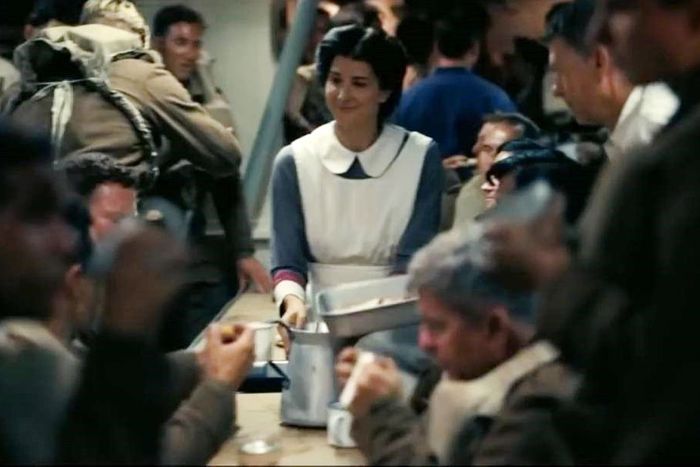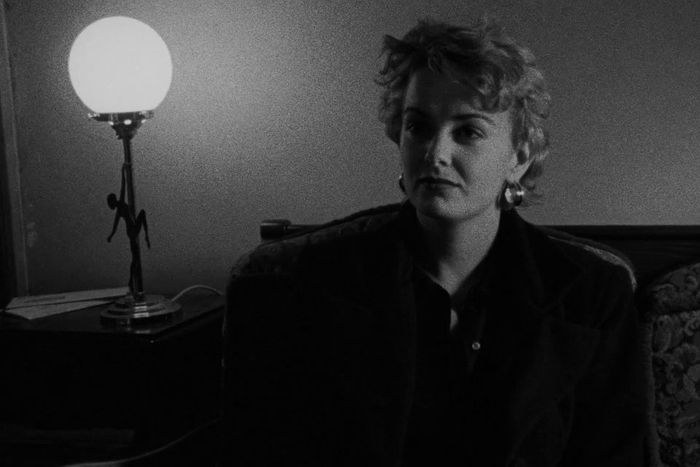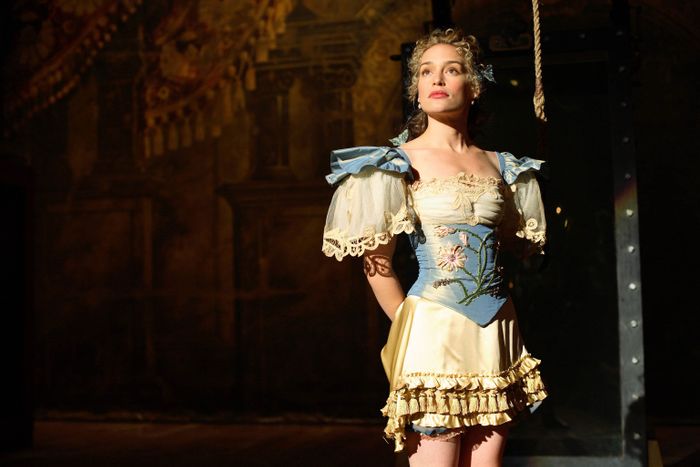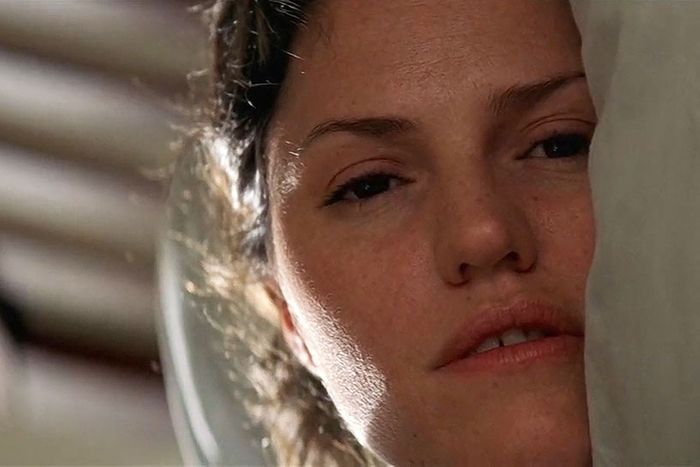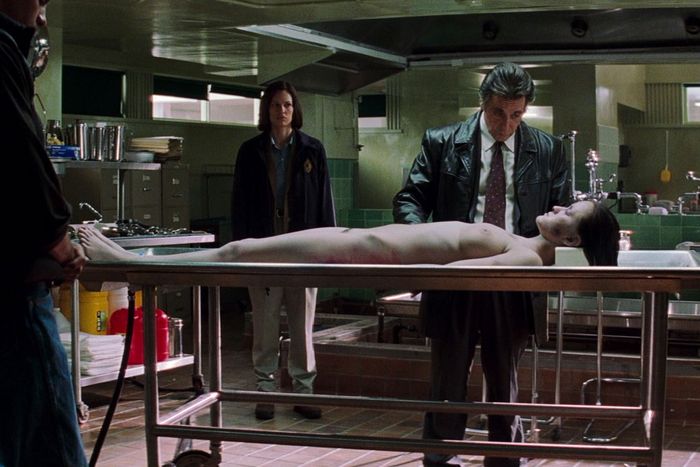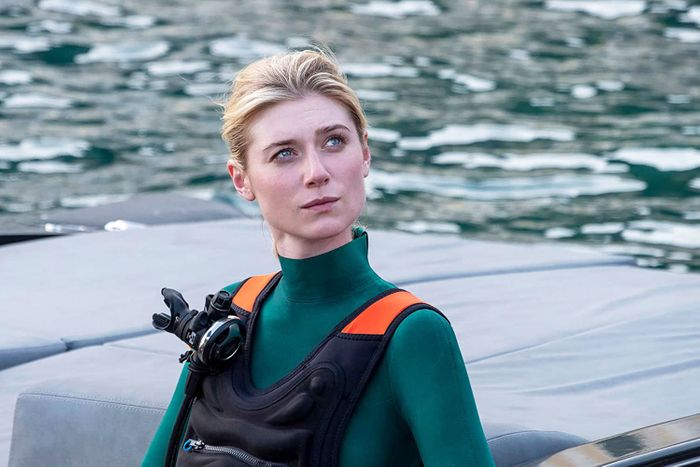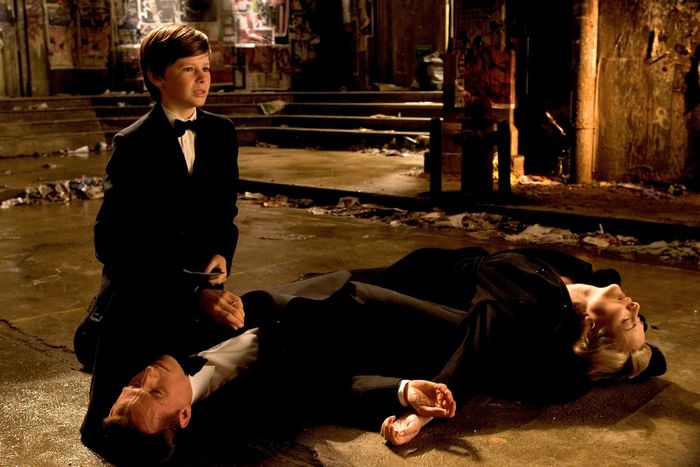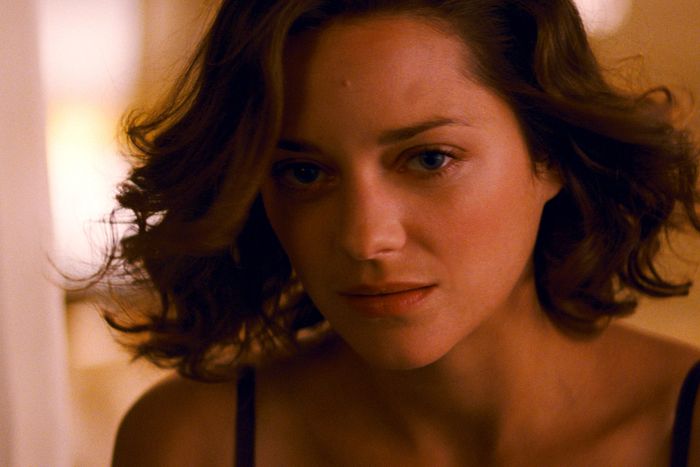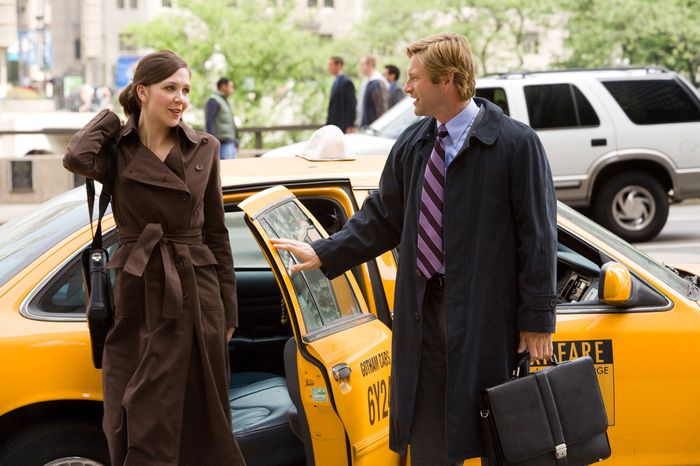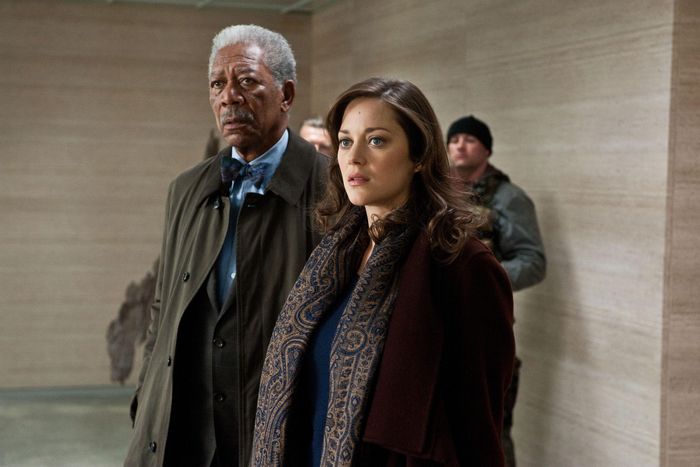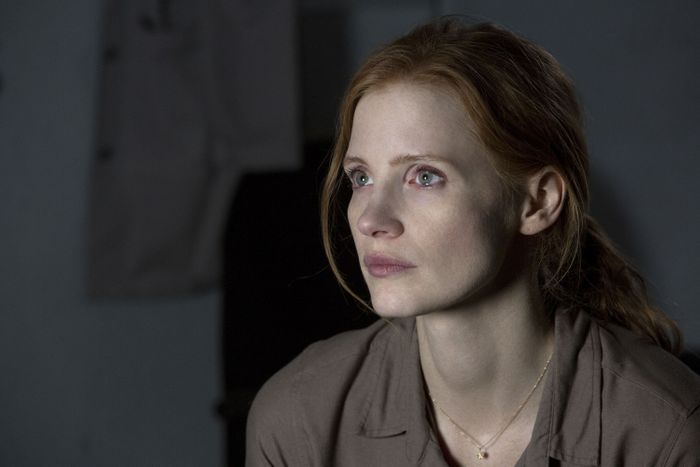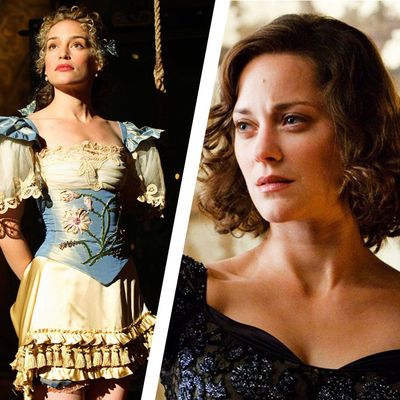
One of Christopher Nolan’s favorite things to do — besides insist beyond reason and science that everyone visit a movie theater during a pandemic to see Tenet, because it is simply too cinematic to be seen in the safety of one’s own home — is to make movies wherein a female character dies tragically, subsequently motivating a male protagonist into action. Nolan, a Leo who identifies as five-foot-11 and ¼ inches tall, simply loves (dead, fictional) women. And if he had gotten his way — which he might have, if it weren’t for us meddling kids! — untold numbers of real women might have died because they went and saw Tenet. Fortunately, at least until Labor Day weekend, we have narrowly avoided that fate.
Having temporarily postponed my own potential “death by Tenet,” I got to thinking: Which Christopher Nolan films would I be willing to risk my life to see? Would I strap on a face shield and head into a theater for Inception? Could the mystical promise of The Prestige seduce me into sitting down in a crowded room with zero windows? Like Batman himself, would I throw myself on a nuclear bomb (metaphorically) in the name of entertainment (figuratively)? Below, I have ranked Christopher Nolan’s movies according to how willing I would be to sacrifice my one mortal life to see them.
11. Dunkirk
I rewatched all of Nolan’s movies for this list with the exception of Dunkirk, because I found it painfully, almost erotically boring the first time I saw it, a beautiful but banal pseudo-highbrow war movie that refuses to make sense as a matter of principle. Despite the fact that my esteemed co-worker Bilge Ebiri ranked Dunkirk as Nolan’s best film in the context of a much more normal article, I simply refused to put myself through it again. What is there left to say about Dunkirk, a movie about 5,000 cloned, freckled British boys with brown hair and cozy sweaters who love to die on boats? More to the point, what happens in Dunkirk? (Don’t tell me in the comments; this is a rhetorical question.) Unlike the multiple nurses who also die on the boats in Dunkirk, I would not sacrifice my life for Dunkirk in any capacity, unless someone walked up to me and said, “Ma’am, you have to watch Dunkirk.” In which case, I would prefer death.
10. Following
Following is Nolan’s 1999 feature debut, and it certainly comes across that way. You can see the fledgling Nolan tropes throughout: people following each other around in alleys, a surprise ending, nonlinear storytelling, men in suits deceiving each other, and, yes, femicide. The only trope he avoids here is his love of bloated run times; Following is an emotionally generous 70 minutes long, and for that, I’m forever grateful. The film centers on a pair of men who rob strangers, ostensibly so said strangers will gain fresh perspective on their lives — extreme “I just graduated from film school” energy. Shot on black-and-white film, Following is a solid effort but sloppy and a bit boring, though not as boring as Dunkirk, and, again, I want to thank Christopher Nolan for that. Still, I would not risk my life for Following.
9. The Prestige
The greatest mistake Christopher Nolan ever made was playing The Prestige totally straight-faced. This is a film about two middle-aged men fighting about who is better at magic. Why so serious? What Christopher Nolan failed to realize is that The Prestige is a high-camp gay comedy, which is best exemplified when a grown man screams, “Secrets are my life, Sarah!” It is a brilliant homoerotic soap opera, and as my friend and writer Fran Hoepfner put it, “A YouTube prank war gone wrong.” In this sense, The Prestige could be considered a masterpiece, albeit one wherein the dramatic death (…) of a totally straight Hugh Jackman’s wife (at the dark hand of a totally straight Christian Bale and his identical twin brother, also played by a totally straight Christian Bale) spurs dear Hugh into a lifelong quest for magic-show greatness that culminates in him contacting Nikola Tesla so that he can clone and kill himself on a nightly basis. And because we are being generous with The Prestige, I won’t even get into the fact that The Prestige cheats on its own premise by creating a fake scientific deus ex machina conclusion that has nothing whatsoever to do with stage magic. Suffice it to say, because of its innate status as a devastatingly lost gay opportunity, I — unlike Piper Perabo and Rebecca Hall — will not be risking my life for The Prestige.
8. Memento
Leonard, the central character in Memento, has a condition that causes him to forget everything every 15 minutes, which, same. This makes things extra difficult for him as he attempts to avenge — you guessed it — his wife’s death, but he gets by with a little help from his tattoos and Polaroids and scribbled notes, which remind him of all the things he’s forgotten in the last 15 minutes. Roger Ebert called Memento, which plays out backward and in both black-and-white and color, “too clever for its own good,” and that is perhaps best illustrated in Shea Serrano’s incredible bullet-by-bullet “explanation” of the film. To me, though, Memento is one of the more pure Nolan entries in that said cleverness fits its subject matter. Like Leonard himself, we should feel like we’ve taken a psychotic theme-park ride through the very concept of consciousness after we’ve seen this movie. My main problem with Memento is that it’s been used as a cultural reference point (see: me saying I am like the guy in Memento at the beginning of this paragraph) too many times and has thus lost some of its punch as a concept. Again, as a reminder, this is not a “best movies” ranking, but a “Would I die for this movie?” ranking. Would I theoretically die for Memento? I forget.
7. Insomnia
The ’90s fantasy of the emotionally detached, brilliant, unorthodox, hard-boiled, maladjusted, and patronizing cop is alive and well in Nolan’s second film, an adaptation of a ’90s Norwegian thriller that follows Al Pacino as a detective who travels to a small Alaskan town to solve the — you know this already! — violent murder of a young woman. Unfortunately, he accidentally kills his partner in the process, which means he must scramble to cover up his own crime while trying to solve the first crime, and the perpetrator of that first crime (Robin Williams) blackmails him, and he can’t sleep, and it’s freezing, and he’s being investigated by internal affairs for this whole other thing that happened before the movie started, and the sun never sets, and Hilary Swank is another detective who’s like, “Not to be awkward, but did you kill your partner, or …?” This movie isn’t bad, but it’s a bit too self-consciously moody and stark, an aesthetic that’s out of whack with Pacino, who goes full Pacino — yelling at teenagers, caressing corpses — while everyone else strives for naturalism. As a result, I could not stop screaming, “Hoo-ah!” as I watched it, which made the whole experience more generally fun. I would not risk life and limb to see this film, but I would watch it again on cable when hungover.
6. Tenet
Much like everyone on Earth, I haven’t seen Tenet, which is why I have placed it near the middle of the list. I am intrigued by Tenet and very possibly willing to die for it for several reasons. (1) Tenet has been described by “a number of Imax employees” as “Oh my God — I forgot how great it was to be in a movie.” (2) It stars Elizabeth Debicki, my favorite wandering goddess. As such, I would definitely be more willing to risk my life to see it than I would, say, The Prestige, which does not star Elizabeth Debicki and is also, as we’ve established, fundamentally insane. Debicki’s character has been described as an “estranged wife,” which could theoretically mean dead. You know, I’m going to go ahead and assume she’s dead. (3) It is apparently about the prevention of a World War, which means that, unlike Dunkirk, it does not actually involve a World War. (4) It must make $500 million to break even, which is why Nolan is so hell-bent on putting it into theaters and driving the human species to extinction.
Did you know that if you watch all three of Christopher Nolan’s Batman movies in one day, you achieve immortality? Anyway, the first in the trilogy, Batman Begins is a 140-minute training montage, starring Christian Bale as a wounded billionaire moodily occupying a series of stark, cavernous spaces and examining various gadgets. Bale is great — as are Gary Oldman as the Last Good Cop and Morgan Freeman as the Last Keeper of Mysterious Gadgets — but my favorite character in the entire franchise is Michael Caine’s Alfred, Batman’s sweet and adorable butler/manny who tells it like it is, but also always has a tray full of tea. As you will shortly discover, I am fixated on Alfred to perhaps an unhealthy degree. A lot of that fixation manifests as concern, as he’s a very old man who’s on his feet most of the day. Does Alfred have health insurance? Does he get any time off? Has Alfred ever had the chance to fall in love? Why does he only have one outfit, and who washes it? Who takes care of Alfred when he’s sick? Does anyone ever ask Alfred what his dreams are? Who cooks for him? I would not die for this movie, mostly because the stakes aren’t high enough yet, but I would die for Alfred. I’m serious.
4. Inception
Unfortunately, Alfred is not in Inception. This automatically means that I am wholly unable to have any kind of emotional response to it. However, I do have to agree with my co-worker Bilge Ebiri when he says that we can “hate Inception all we want” but we do “have to hand it to Christopher Nolan.” Inception is a totally original concept, one that was sticky enough to create an entire lexicon around the notion of “being incepted” by something. In other words, we were all incepted by Inception to talk about being incepted by things. Much like Memento, the film has lost some of its resonance because we’ve beaten it to death as a cultural phenomenon, but it’s still really fun to watch Ellen Page verbally berate Leonardo DiCaprio (who is, yes, haunted by the death of his wife) in a variety of surreal dreamscapes. And Goddamn it, on this third rewatch, I still found myself Googling, “End of Inception explained,” like an absolute chump. I wouldn’t risk my life for Inception because that would be embarrassing at this point, but I would allow Leo to prance around in my dreams totally unchecked, which is in itself a sort of ego death.
What happened to Katie Holmes, so unceremoniously replaced by Maggie Gyllenhaal as Batman’s one true love (who is then, yes, murdered) in this film? Some people think she turned down the movie because of Tom Cruise; she maintains it was to do the movie Mad Money, which is patently insane. Did Christopher Nolan replace her because she was playing Rachel Dawes with a Joey Potter vibe? These are the sorts of questions that I’d like to ask Christopher Nolan, who would then become furious with me for wasting his time, even though it is running permanently backward. Anyway, back to Alfred. In this movie, Alfred is extra cute, and I am extra concerned about his pay structure and benefits. Sure, he inherited the estate from Batman, but what about when Batman, uh, returned? Does Alfred ever get to retire? Is he meant to die standing ramrod straight, holding a little tray of sandwiches? A lot of people consider this to be the best Batman film of the trilogy, but I disagree, if only because Alfred does not get any sort of catharsis, which means that I don’t either. I can’t die for this movie because then I will not know whether Alfred has found peace.
The Dark Knight Rises illuminates Christopher Nolan’s right-wing-ish politics in a slightly horrifying way, but we’re not here to talk about that (but let’s just say, Bane, some points were made). This movie successfully concludes seven-plus hours’ worth of Batman movies while also taking the time to hurl Batman into a hole in the ground for 60 minutes. That, my friends, is cinema. The Dark Knight Rises is my favorite of the trilogy because the stakes are very high; Anne Hathaway is the only one who understands that Christopher Nolan’s movies are gay camp; Tom Hardy demonstrates good mask etiquette; and Alfred is finally granted a vacation. After Batman fakes his death, Alfred goes to Italy, where, as he’s previously explained, he used to visit around the first time he thought Batman was dead (please keep up) and imagine he saw Batman at a nearby table. In the final minutes of The Dark Knight Rises, Alfred does see Batman at a nearby table, and they just sort of nod at each other and don’t even say hi or hug. This crushes me every time. I know that Alfred told Batman that, should he happen to fake his own death and travel secretly to Italy and see Alfred at a nearby table, he should not say hi, but damn, Batman! This man devoted his entire life to you! Give him a hug! I cried for 15 minutes after seeing this movie because I was so torn about Alfred’s vacation, which I really wanted for him, but which culminated in Batman icing him out in Italy. Anyway, uh, I’d risk my life to see this movie because I clearly need it to help me work out some deep-seated psychological issues.
1. Interstellar
People love to clown on Interstellar, but there will be no clowning here. As someone who simply loves to cry at space movies about daddy issues, I absolutely adore this film, which feels like a spiritual sibling to Contact, the best space movie of all time. Sure, Interstellar is unhinged and scientifically questionable, but it’s also a bighearted, wildly sentimental, incredibly earnest movie about learning to let your parents (and/or children) go, about sacrifice and survival and black holes and gravity and betrayal and that thing where you use bookshelves to communicate with your children via a tear in the space-time continuum. To me, this is the only film where Nolan bares his soul a little bit, his aggro intellectualism taking a brief back seat to real vulnerability. It’s also one of his only films where the sci-fi subplots — shaky as they may be — feel genuinely fascinating and of a piece with the human story being told. This is a movie from a man who is beginning to understand his own hubris, and maybe feels a little bit embarrassed about it. This is a movie from a man who might also cry because of Alfred’s emotionally complicated vacation. Much like Matthew McConaughey (who is…yes…a single dad) risks his life to go to a random planet and save the Earth and then comes back when his daughter is dying because he accidentally was in space for way too long, I would, in fact, risk my life to see Interstellar.



